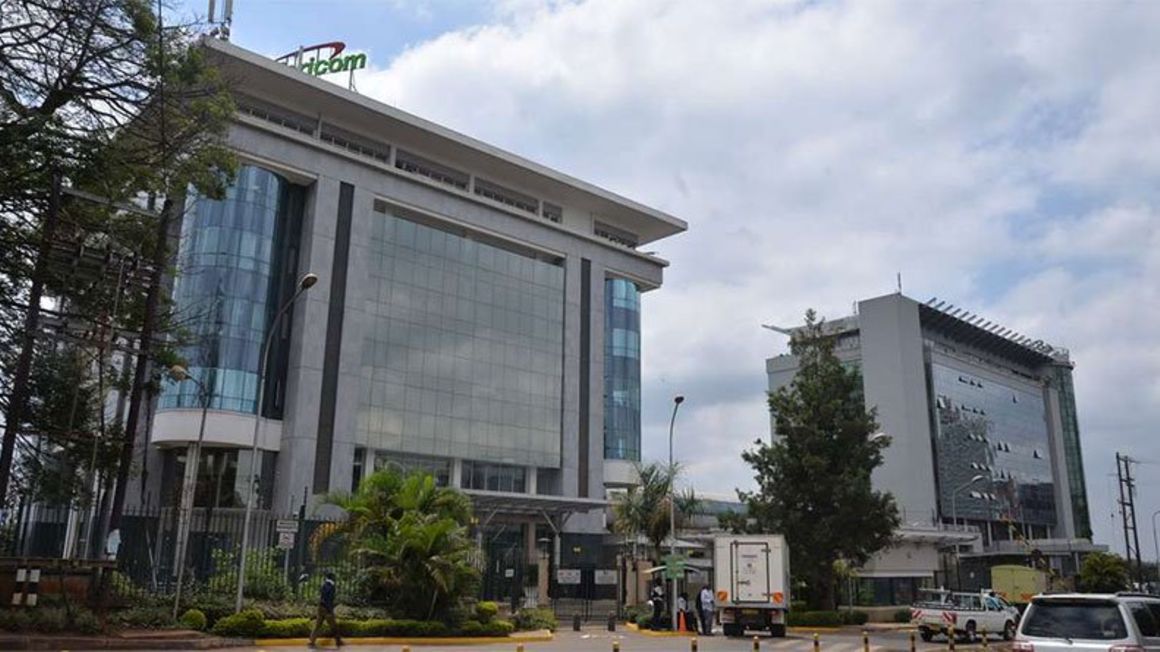
Safaricom headquarters in Nairobi. FILE PHOTO | NMG
Summary
- Reduction of Kenya’s corporate tax from 30 percent to 25 percent helped to prop up operating income in half year period ended September.
- Safaricom tax expense during the six-month period fell by 27.6 percent or Sh4.45 billion to Sh11.68 billion, reducing the fall in net profit.
- While the tax cuts represent a saving to businesses and individuals, they are costing Treasury billions in foregone revenue, rising prospects of rising debt levels.
Safaricom saved Sh5.67 billion (R805 million) from the lower corporate tax rate offered by the State in April to support businesses in the disruptive Covid-19 environment.
Vodacom Group, which has a 35 percent stake in Safaricom, discloses that the reduction of Kenya’s corporate tax from 30 percent to 25 percent helped to prop up operating income in half year period ended September.
Kenya in April lowered the corporate tax for resident companies to support business weather Covid-19 disruptions that have hurt revenue triggering layoffs and salary cuts.
“Net profit from associate and joint ventures and operating profit was impacted by a positive one-off deferred tax rate adjustment of R805 million,” said Vodacom.
“The adjustment related to the decrease of the corporate tax rate in Kenya, which fell from 30 percent to 25 percent.”
A deferred tax is a liability that is to be paid in the future. A reduction in deferred tax is usually represented as a tax credit.
Safaricom tax expense during the six-month period fell by 27.6 percent or Sh4.45 billion to Sh11.68 billion, reducing the fall in net profit.
The net profit dropped by six percent to Sh33.07 billion with M-Pesa, voice and messaging revenue dropping.
A decision on whether to book a tax credit is dependent on the judgment that a certain tax policy will apply for the foreseeable future.
It is still unclear how long the cuts, which also saw salaried people earning up to Sh24,000 exempted from income tax, will last given the resurgence in Covid-19 infections.
M-Pesa revenue dropped by 14.5 percent to Sh35.89 billion despite the value of transactions rising by 32.9 percent to Sh9.47 trillion.
The drop was on account of the decision to zero-rate fees on transactions of Sh1,000 and below to reduce cash handling in Covid-19 environment.
While the tax cuts represent a saving to businesses and individuals, they are costing Treasury billions in foregone revenue, rising prospects of rising debt levels.
Kenya Revenue Authority posted a Sh62.95 billion shortfall on its payroll and consumption tax collection targets for three months to September.
Value added tax collection posted the worst performance, missing the target by 27.19 percent.
Receipts from pay as you earn, excise and import duty were off the mark by a margin of 21.11 per cent, 16.85 per cent and12.06 per cent, respectively.







No comments :
Post a Comment